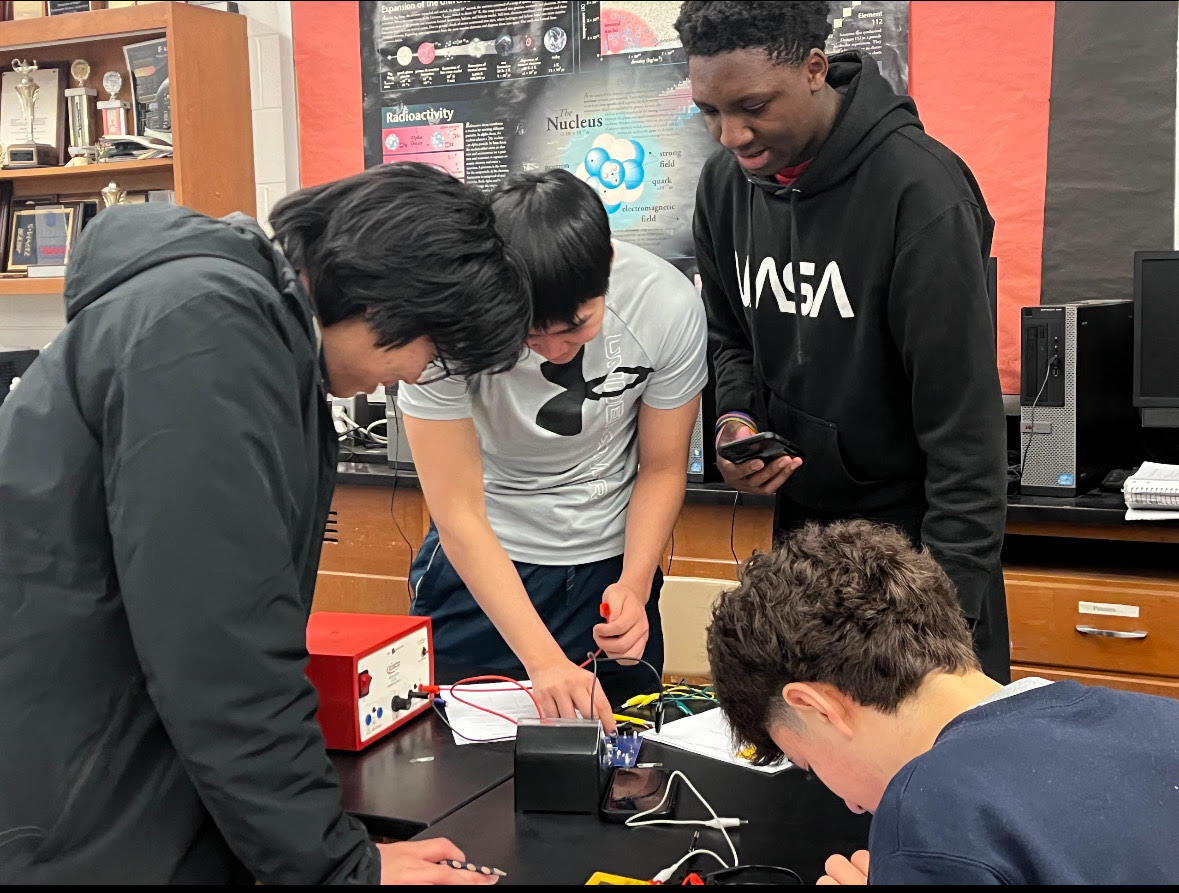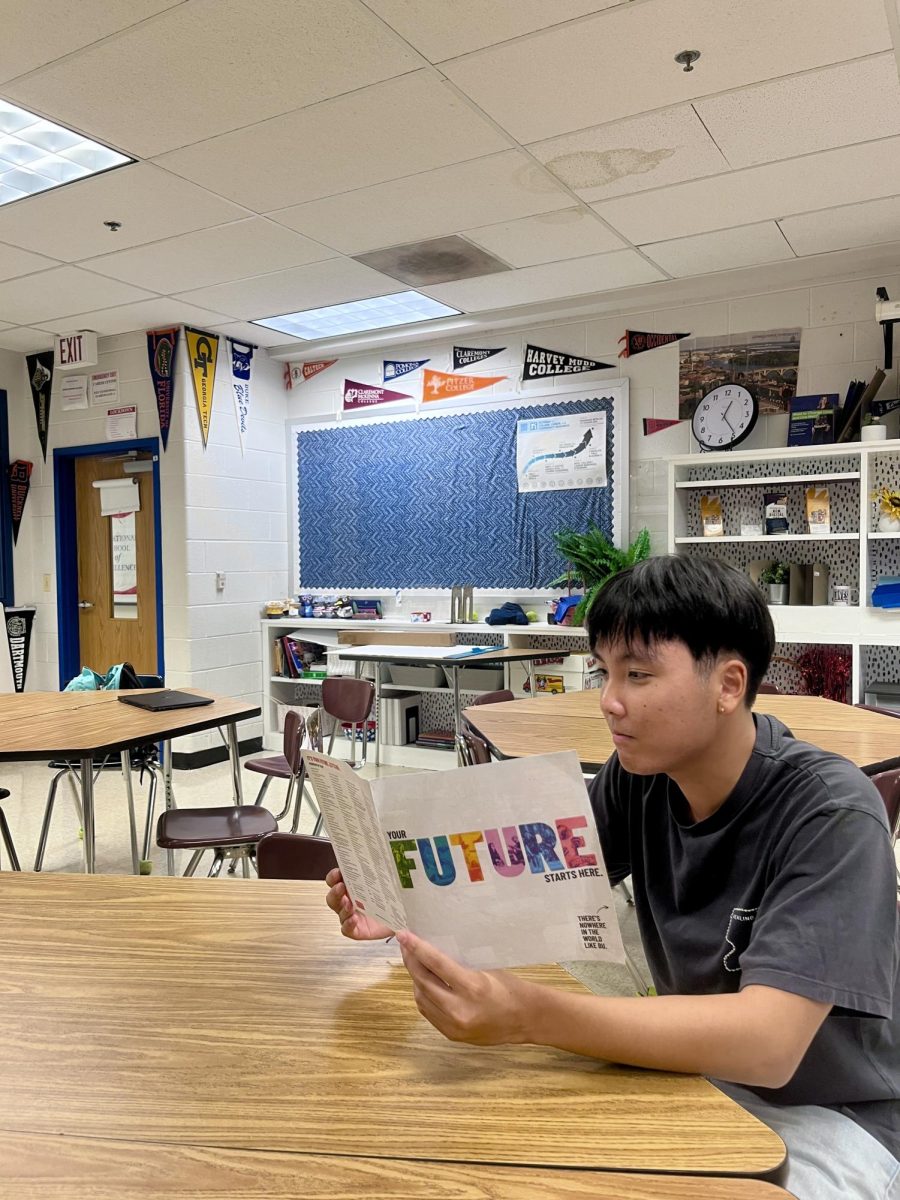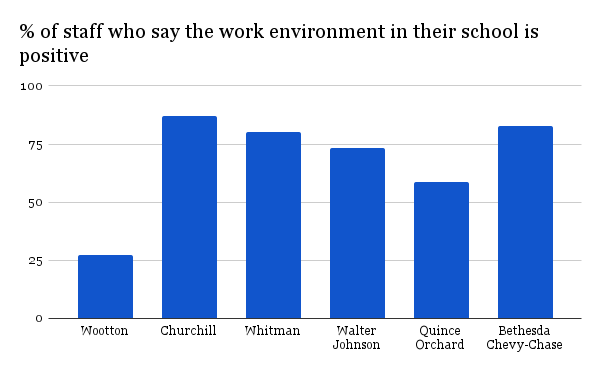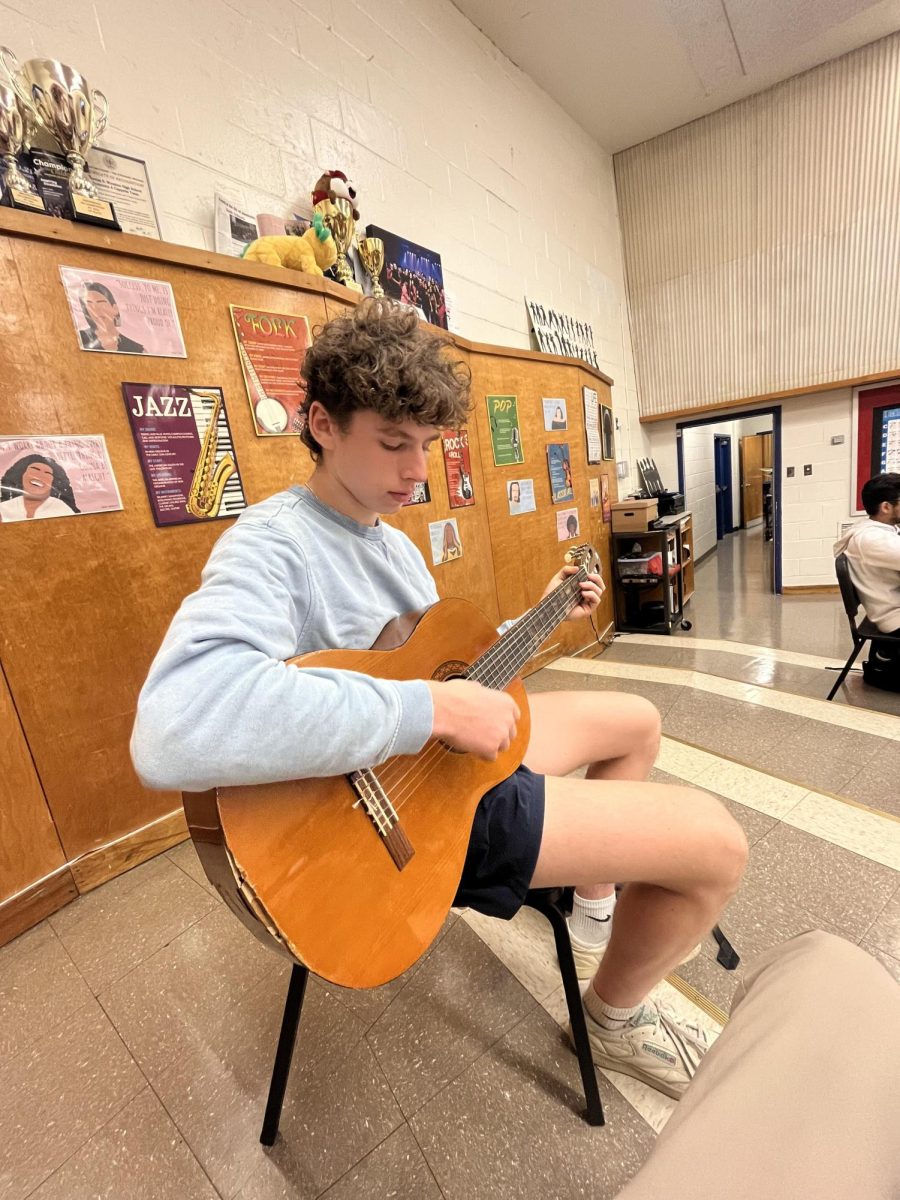AP Physics 1, AP Physics C: Mechanics, and AP Physics C: Electricity and Magnetism are arguably three of the most demanding courses this school has to offer. While students may enter these classes paralyzed with fear, I believe there are strategies they can put in place to help them succeed.
AP Physics 1 is considered the entry-level AP Physics course offered by College Board. There is a population of students who take this course simultaneously with a pre-calculus course, but I am grateful to have finished an AP Calculus course beforehand. Although physics is not necessarily taught in AP Calculus, building a deeper understanding of math allows you to focus more on physics when solving problems, and less on the math, simply because the math would feel like less of a challenge.
Despite AP Physics 1 being referred to as an algebra-based course, there are plenty of scenarios where you can apply calculus as a shortcut to save you time during fast-paced exams. While taking calculus before or during AP Physics 1 is by no means a requirement, I think it would give students their best chance at succeeding.
AP Physics C: Mechanics and AP Physics C: Electricity are the two AP courses that students can take following AP Physics 1. These courses are both calculus-based, and, while you can technically take these courses without calculus knowledge, I believe that for the vast majority of students, they would be put at a massive disadvantage by entering with no prior experience with calculus. You do not want to find yourself in a position where you are teaching yourself math by taking these courses, since you could use that valuable time to learn physics itself. Wei Huang teaches both AP Physics C courses and has a slightly different opinion on this matter. “Students can circumvent the complexity of calculus-based problems if they have a good understanding of physics,” Huang said.
When taking AP Physics C courses, students must take on both a lecture period and a lab period. The lecture period is focused on content and learning, while the lab period is focused on conducting experiments and applying the content we learn to experience it firsthand. My peers who have taken these courses, especially both AP Physics C classes, often complain that the class is overly stressful, with a strong emphasis on work from the lab period turning into long homework hours. “Not only the workload [makes the course difficult], but the double period increases pressure on students and the pacing of the class and the way it’s taught,” junior Dennis Li said.
While the class is filled with difficult concepts, extensive homework and endless review problems, with the right strategies, students can increase their chances of success in AP Physics C courses. The first thing I would recommend is being fully alert in class and not losing focus. The class moves fast and will leave you behind if you fixate on a problem that you don’t understand. Rather than fixating on the last problem, take note of your question and ask Huang during advisory, at the end of class or before class if she is available. Every question you have is important and should be asked.
I also recommend taking every opportunity you can to either help a friend or ask a friend for help. When helping a friend, you have to work to simplify concepts to make them easier to explain. This strategy will make these concepts easier for you to understand and stick in your brain longer. Take advantage of your peers and ask every question you have. “I would come in a lot of days for advisory and lunch to review with friends, and I started asking questions in class a lot more. At home, I would spend a lot of time double-checking answers for questions I got wrong and reviewing the checks for understanding,” Li said.
A common approach people take when trying to learn physics is memorizing formulas. This method will never lead to success; physics is a highly conceptual subject. You are better off never studying, staying alert in class and getting a good night of sleep the night before your exam than pulling an all-nighter to memorize formulas and specific problems. “It’s the critical thinking ability and math ability. Most students are more comfortable with memorizing similar problems or patterns, and not being trained to have critical eyes on subtle details and different situations, and being able to analyze a situation critically. Every day should be a day that counts. If they make every day count they won’t need to prepare for exams,” Huang said.
For me, the best way to review is to keep practicing problems and take advantage of all of the homework we are assigned. The more problems you solve, the more of a problem-solver you will become, giving you the best chance to succeed in high-pressure moments. Students are provided multiple checks for understanding and homework problems on the online platform Quest each unit. “[To succeed] I would review the checks for understanding and Quests,” senior Mason Lee said.





![Editors-in-Chief Ahmed Ibrahim, Helen Manolis, Cameron Cowen, Alex Grainger, Emory Scofield, Hayley Gottesman, Rebekah Buchman and Marley Hoffman create the first print magazine of the year during the October press days. “Only a quarter of the schools in MCPS have programs that are like ours, a thriving, robust program. That makes me really sad. This is not just good for [the student journalists] to be doing this, it’s good for the entire community. What [student journalists] provide to the community is a faith in journalism and that continues for their lifetimes," Starr said.](https://woottoncommonsense.com/wp-content/uploads/2025/10/wmpoFTZkCPiVA3YXA4tnGoSsZ4KmnKYBIfr18p3l-900x1200.jpg)


